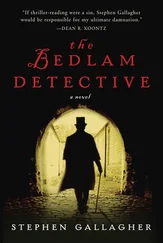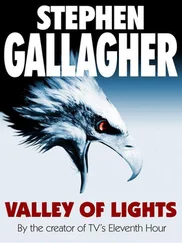It surprised me how quickly I was willing to drop the world. I wanted to avoid getting into trouble. I wanted to go home. I wanted to live.
I thought of my men. “What about… Hotspur?”
“It’s one month. Sergeant Chambers can get them home.”
I nodded meekly, knowing that, despite everything else, he could do that, and that he would.
“Your war’s over,” the Big Man repeated. This time, I couldn’t help but relent.
I waited on the patio of Pizza Hut, stirring my soda water with a straw and poking at an untouched slice. A raw December wind pushed through the gulch, spraying sand pebbles into the faces of passing soldiers and contractors. A few hats blew off heads and onto the ground. No one was bothered. We’d all be in America in a week’s time. I readjusted my fleece cap and went back to playing with my food, right leg twitching and twitching.
Where is Ibrahim? I thought. He’s fucking late.
I’d become a witness to my own war. Since higher wouldn’t let me go on patrols anymore, I’d embraced my inner fobbit. Hot showers. Steady meals. Steadier sleep. Sure, I made PowerPoint slides and charts. But mostly I counted off calendar days, killing time.
There’d been guilt, of course, a little about the missing Sahwa money, mostly about other things. But I’d learned something about myself during the blanched, neutral weeks at Camp Independence: I was no martyr. The truth mattered less to me than survival did. If that made me a coward, then at least I was a coward who’d been shot at.
Then they’d found the empty backpack.
Fingers were pointed and words were yelled, and through it all I stayed silent as a monk. “This isn’t going to show up in your bank account, right? That’s the first place they’ll look,” my JAG lawyer kept repeating. He claimed that a defense of negligence, even the gross negligence of losing twenty-five thousand dollars, would keep me out of jail. “I wouldn’t count on get getting promoted, though.” I’d just shrug, say I was planning on leaving the army anyhow, and repeat the half truth that I’d dropped off a backpack in the arms room.
My leg was twitching so furiously that it bumped the underside of the table, loosing a ricochet of sound into the late afternoon. A few nearby soldiers turned to look. Needing something to do to get away from their eyes, I stood to throw out my drink and pizza. When I sat down again the watchers had gone back to their meals, and it was my turn to observe as a familiar face strode the length of the gulch to the base exchange.
Sergeant Griffin walked through the automatic doors of the exchange. She’s going home to take her son to first grade, I thought. And that matters. It matters a lot. Then I pushed away images of Rana doing the same with Ahmed and Karim. I tried not to think about them anymore, though that hadn’t stopped the nightmares. Nightmare, really, since it was always the same one. Three heads in a ditch, lined up like nesting dolls, their jaws hanging open in everlong shock, smelling of smoke and maggots.
A hand slapped my shoulder from behind.
“Easy, sir.” It was Ibrahim. He took a seat and pushed his plastic-rimmed glasses up the bridge of his nose. The table creaked under his weight. “Got the thing.”
As he pulled a file thick as a fossil from his bag, it took great restraint not to snatch it from him. He set it on the table. I touched it with a thumb just to make sure it was real.
“Awesome, man,” I said. “Know this wasn’t easy.”
“All good,” he said. “My buddy’s an interrogator. Once he heard this was the guy who put the fatwa on us, he was happy to help. Muslim brotherhood, you know?”
“Thank him for me,” I said, finding the folder label with the name YOUSEF AL-NASIR on it. The falafel man’s interrogation transcripts, weeks’ worth, ever since the Rangers found him hiding under a pile of blankets on a roof. “No one else will see it, of course.”
We sat together for a few minutes, listening to the cadence of empire. Cargo planes rumbled through the winter sky while helos sliced at it. Soldiers made jokes about small dicks and big dicks. With the sun falling into the west, someone in the gulch trilled the Zulu chant from the beginning of The Lion King .
I smiled in spite of myself.
Ibrahim seemed to be doing well. Less depressed, at least.
“Lot better,” he said. “Almost went crazy out there. Now it all just seems like a bad dream, you know?”
We shook hands, and he saluted. I watched the large man walk into the sludge of dusk.
“Be the scorpion!” he called over his back. I didn’t answer.
I placed the transcripts in my own pack. I wanted to read them more than anything, but knew if I started I wouldn’t be able to stop. I’d save them for my housing trailer later, where no one could see me.
First, though, I had to go back to battalion. There was a graph about local business grants I needed to finish. The major had been quite clear about that.
Even though I was late, I took the long way there, walking up the gulch toward the tank graveyard. The yard was a laser show, dozens of Iraqi contractors wearing fireproof suits and wielding blowtorches. According to base gossip, it took ten hours to destroy one Stryker, cutting each vehicle into pieces small enough to feed industrial metal shredders.
General Dynamics had no need for their war machines, and neither did the U.S. Army — Strykers didn’t work well in Afghanistan, the terrain was too rocky. Turning them over to the Iraqi military seemed out of the question, since every vehicle was filled with state-of-the-art technology. So there was only this, hiring locals to destroy them, shredding Strykers by the thousands.
I walked to the fence of the yard, sticking my fingers through the chain links. The heat from the blowtorches blew across my face.
A shadow approached the fence through the near night. “Twenty dollars.”
It was one of the Iraqi contractors, his fireproof suit dark yellow and covered in soot and burn marks. I asked what for. He held up a tiny green cube. The remnants of one Stryker, ground into a square to sell locally. I pulled out my wallet and handed over a twenty for the armored cube. It felt smooth and flat in my palm, like glass.
“Thanks,” I said to the contractor.
“No,” he said. “Thank you.”
I walked up the asphalt road that led to headquarters and crossed the yellow-grassed quad. I opened the door into the operations center slowly, hoping to get to my workstation unnoticed. It wasn’t dim laptop green illuminating the room, though, but the bright yellow of electric lights. Soldiers weren’t sitting and typing, quietly going about the business of war bureaucracy. They were standing around, prattling. They spoke at once, as if they’d rehearsed it, so I couldn’t associate the message with anyone particular.
“Sergeant Chambers,” they said. “Sergeant Chambers is no longer with us.”
Bodies reached for me, drawing me to their circle of grief. Ostensibly they wanted to console, but they really wanted something else, something they could break from me and take home for themselves. I wouldn’t let them, though. I stood there casual as a stone, arms down and body rigid, until they let go.
“It hasn’t hit him yet,” I heard them say, and I let them think that, because it meant being left alone.
Later I’d learn that he found a scorpion in his boot that morning. That was what some soldiers said, at least. Others said that was bullshit, just a stupid story. After all, the cynics argued, who ever found a scorpion in their boot in Ashuriyah?
They all agreed on how it happened, though. It was the Day of Ashura, a Shi’a festival. They’d gone on a foot patrol through the market blocks and found a large crowd watching a young man whip himself with chains. The soldiers said that while some Iraqi kids were laughing at the man whipping himself, none of the adults were.
Читать дальше




![Ally Carter - [Gallagher Girls 02 ] - Cross My Heart & Hope To Spy](/books/262178/ally-carter-gallagher-girls-02-thumb.webp)
![Ally Carter - [Gallagher Girls 01] I'd Tell You I Love You But Then I'd Have to Kill You](/books/262179/ally-carter-gallagher-girls-01-i-d-tell-you-i-lo-thumb.webp)






